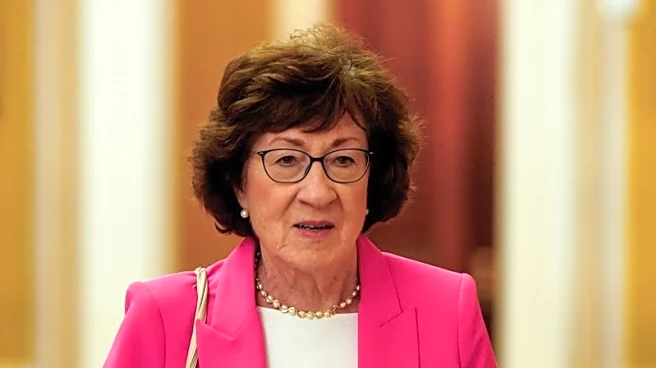What's Happening?
A federal court has invalidated Texas Republicans' mid-decade redistricting effort, citing racial gerrymandering. The decision, authored by Trump-appointed Judge Jeffrey V. Brown, was released without
allowing dissenting Judge Jerry E. Smith, a Reagan appointee, to complete his counterpoint. Smith criticized Brown's conduct, calling it 'pernicious judicial misbehavior.' The ruling blocks Texas from using the new congressional map for the 2026 midterm elections, asserting that the map was drawn based on racial makeup, violating federal law and Supreme Court precedent. Texas Governor Greg Abbott plans to appeal the decision.
Why It's Important?
The court's decision has significant implications for the political landscape in Texas and potentially nationwide. It challenges the redistricting efforts initiated under President Trump to maintain Republican control of the House of Representatives. The ruling underscores the legal boundaries of redistricting, emphasizing that race cannot be the predominant factor in drawing district maps. This decision could influence future redistricting efforts and impact minority voter representation. The appeal process may set a precedent for how courts handle similar cases, affecting political strategies and election outcomes.
What's Next?
Texas is expected to file an appeal with the Supreme Court, drawing upon Judge Smith's dissent. The appeal will likely focus on defending the redistricting as a partisan exercise rather than racial gerrymandering. The Supreme Court's decision could have far-reaching consequences for redistricting practices across the country. Political leaders and civil rights groups will closely monitor the case, as it may influence future legislative and electoral strategies. The outcome could affect the balance of power in Congress and shape the political landscape leading up to the 2026 midterm elections.









